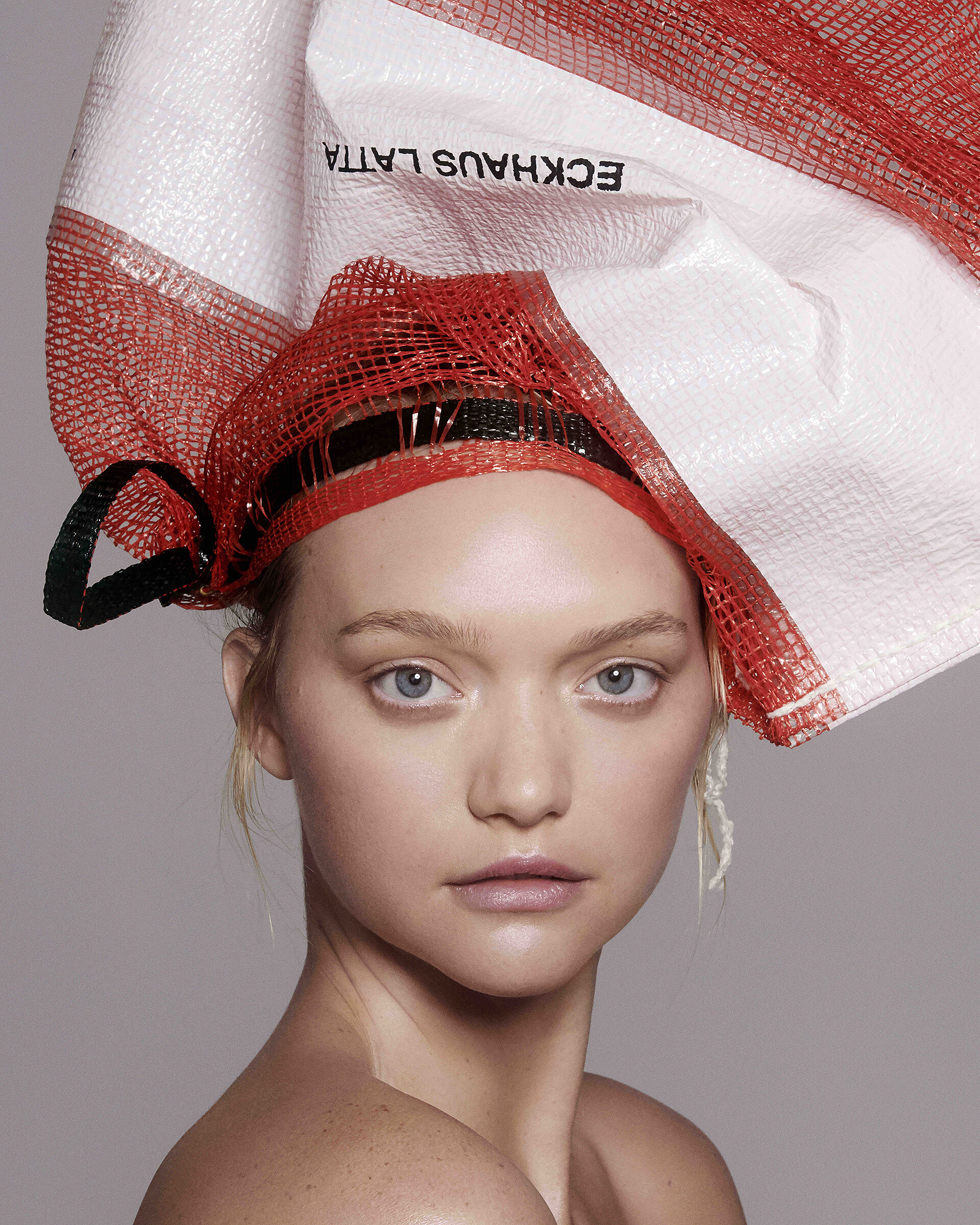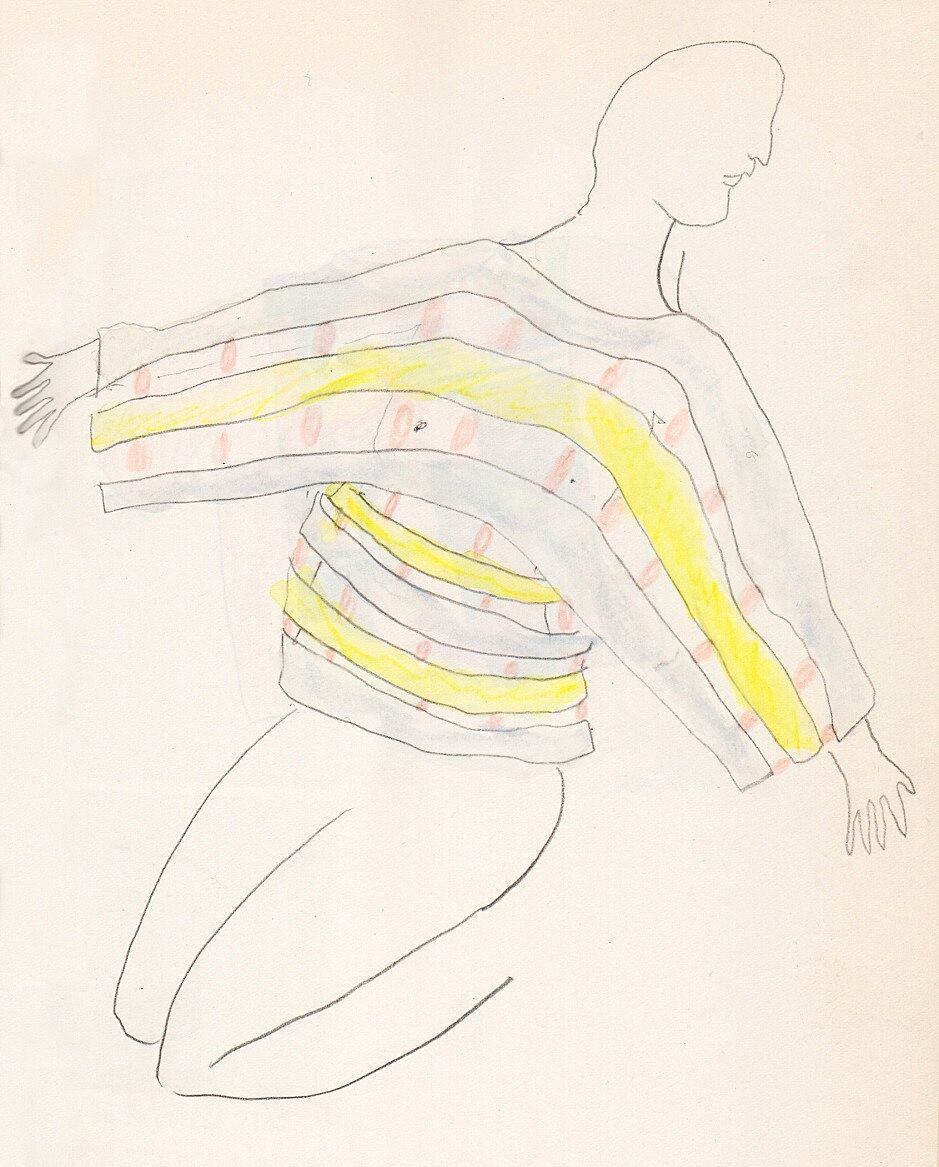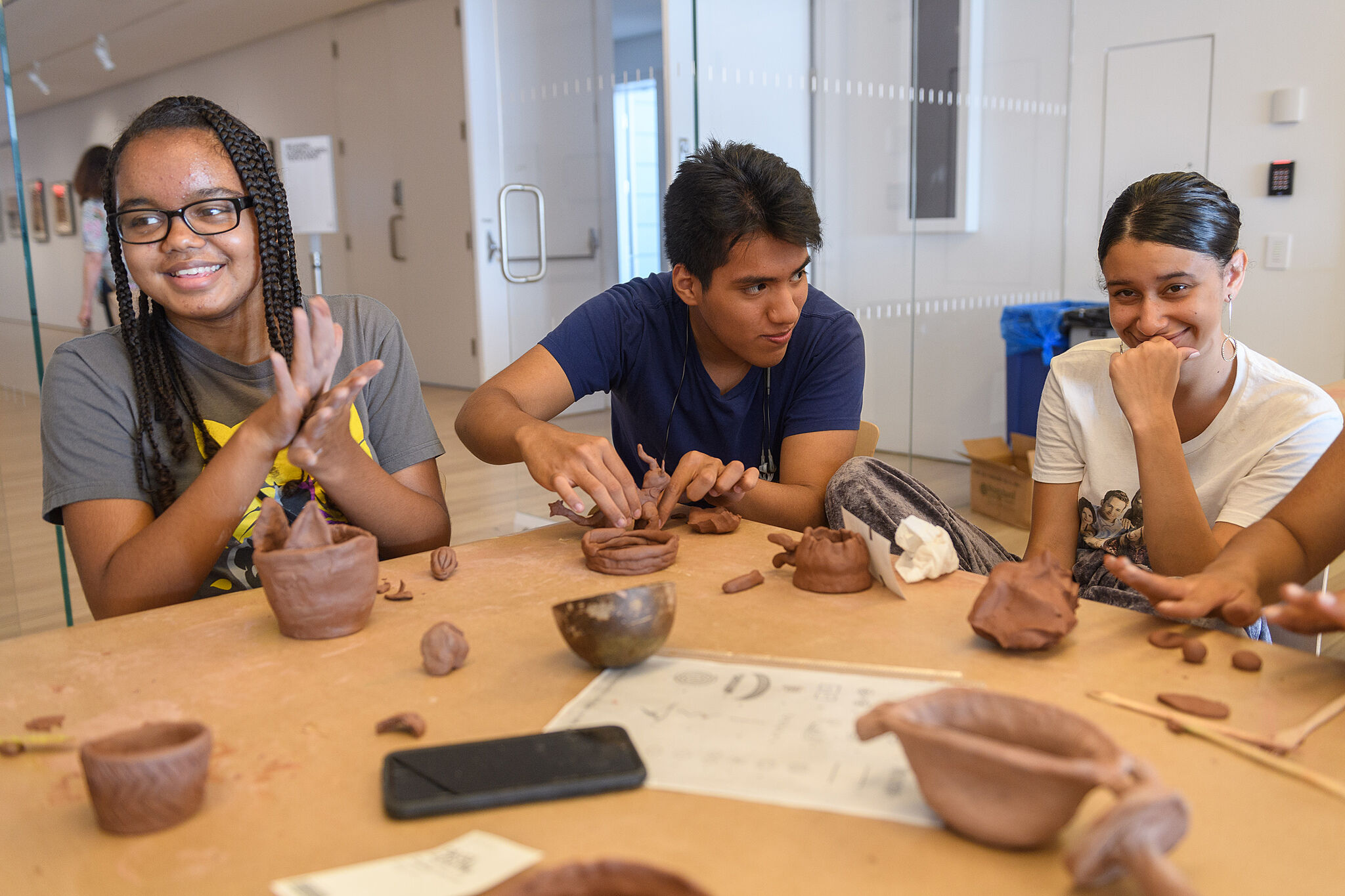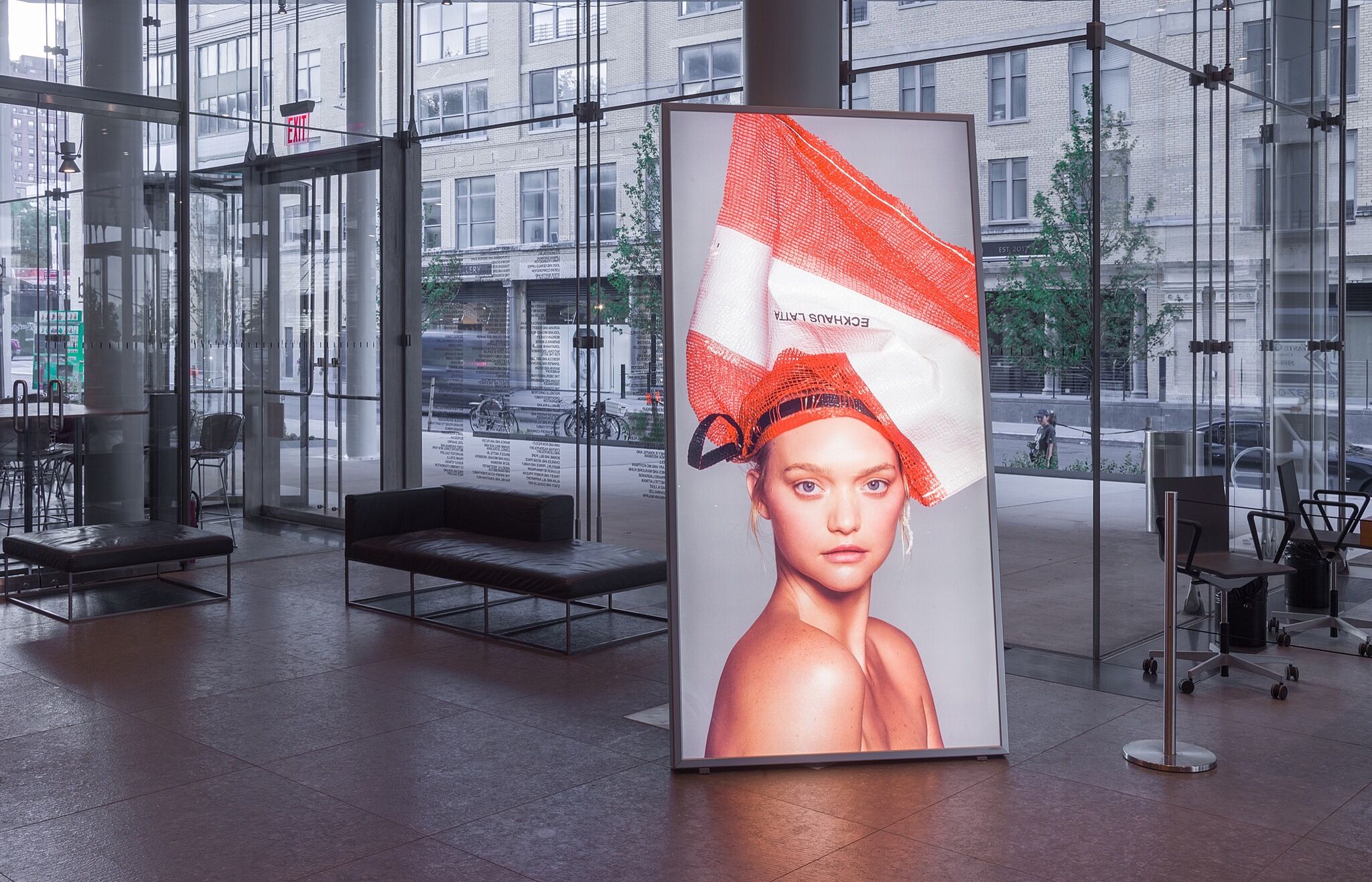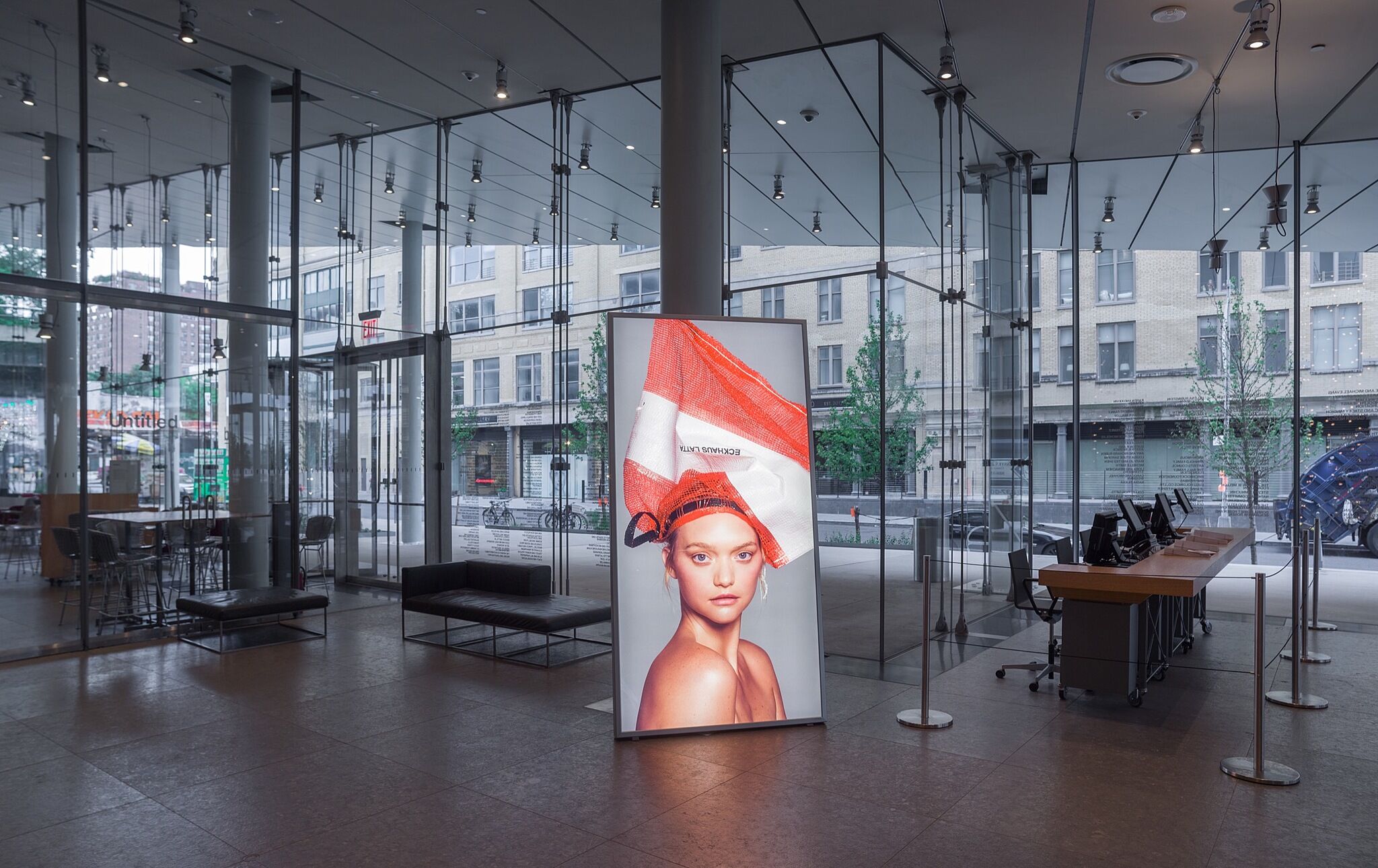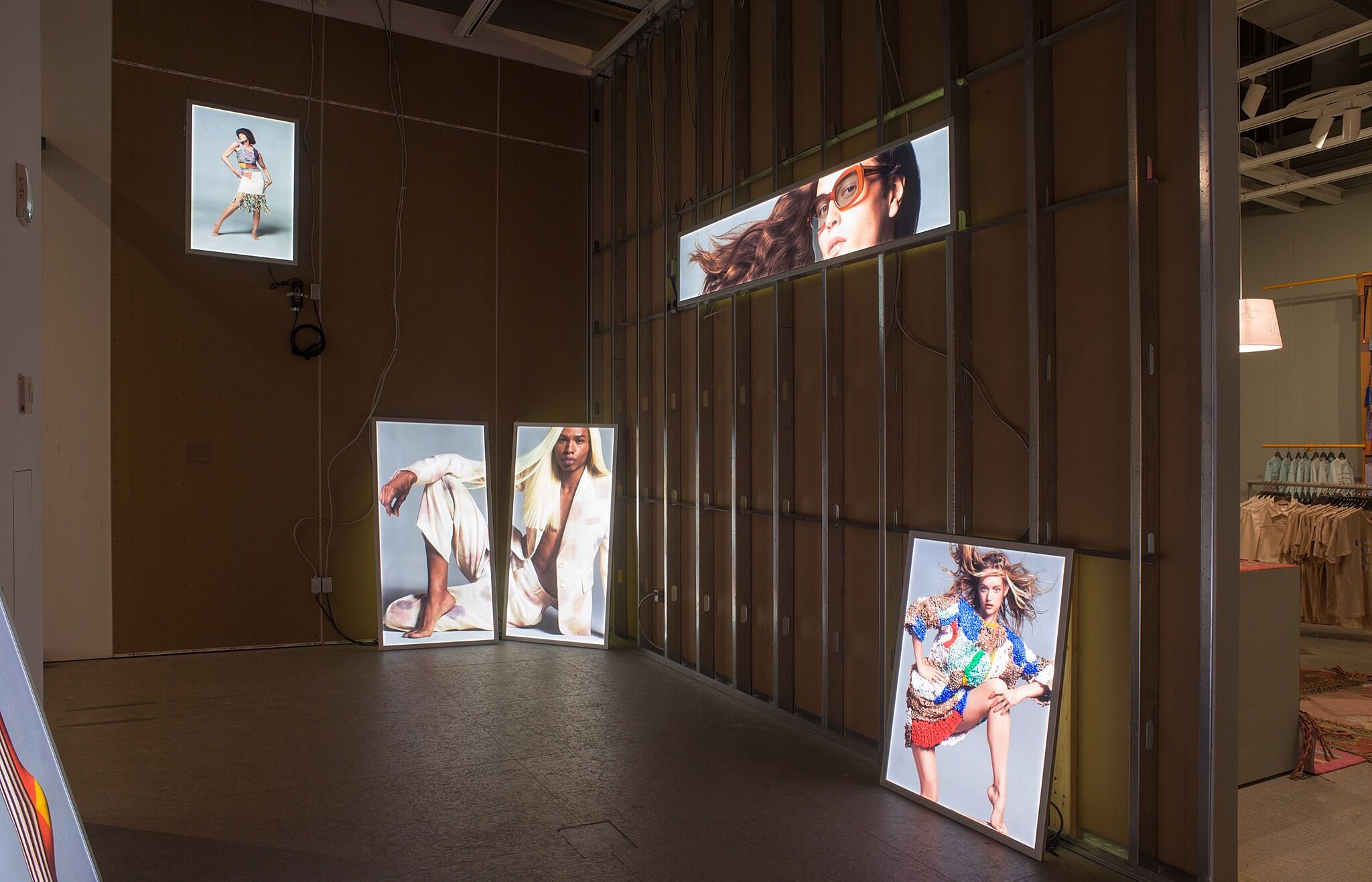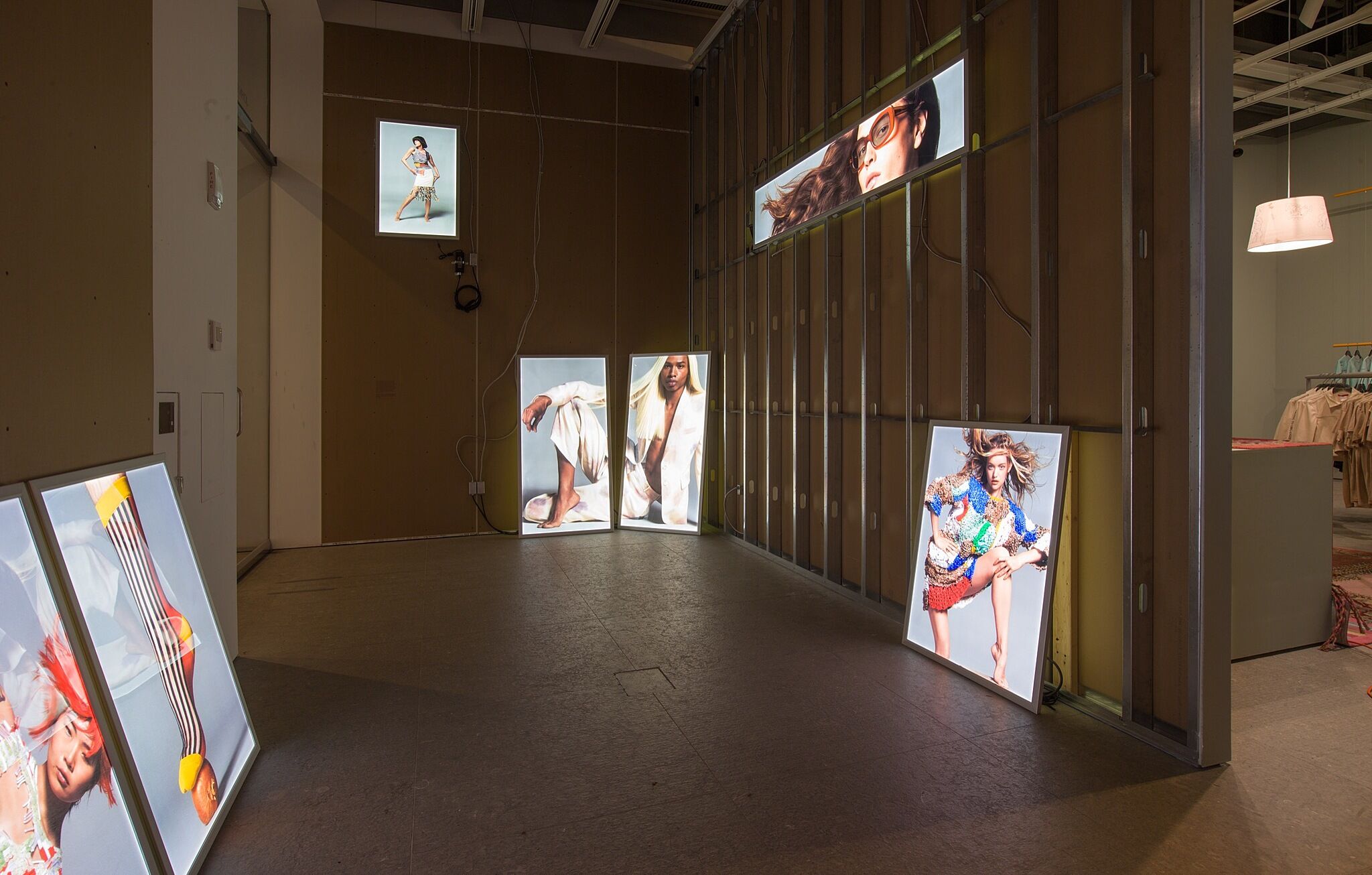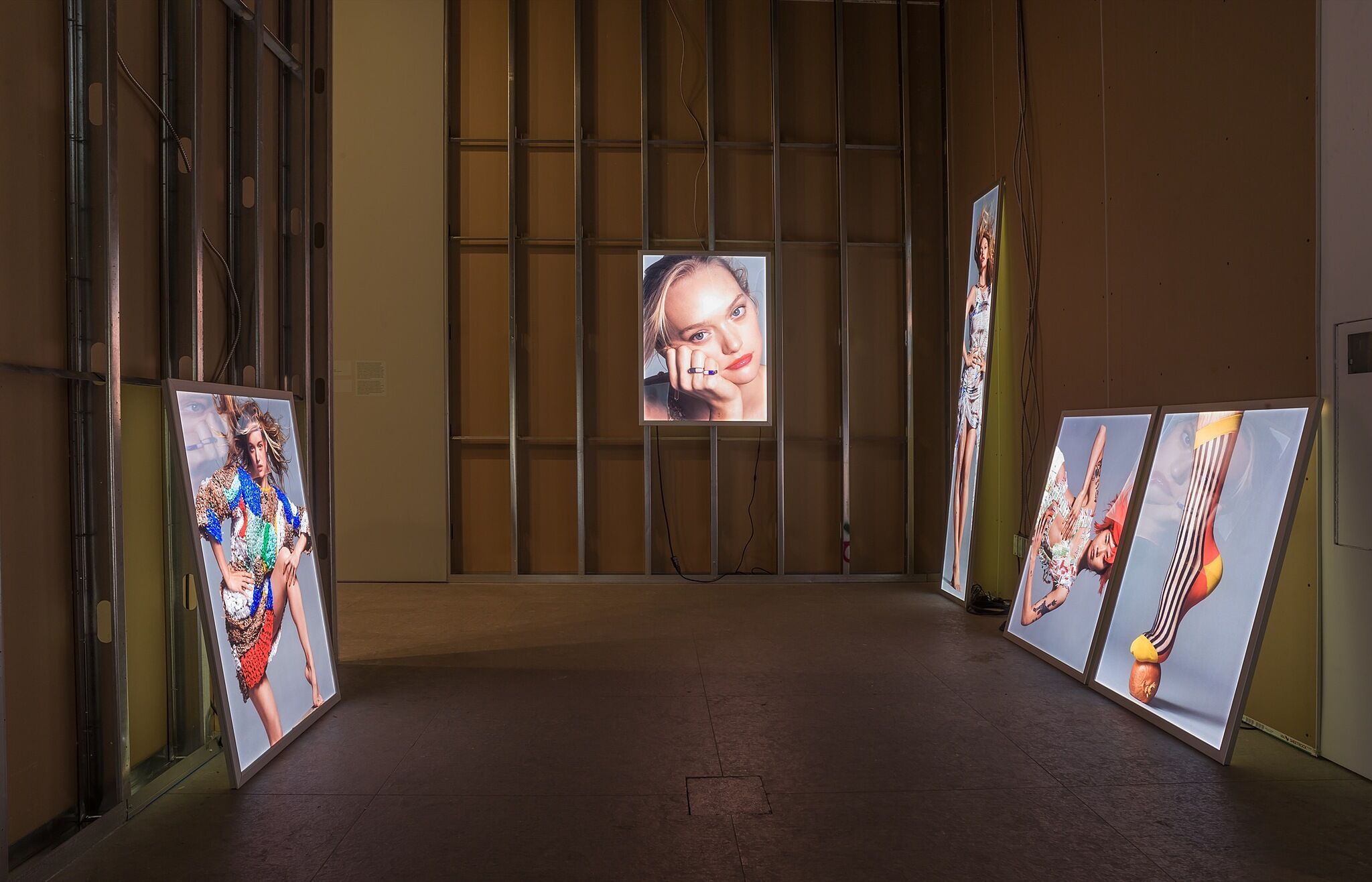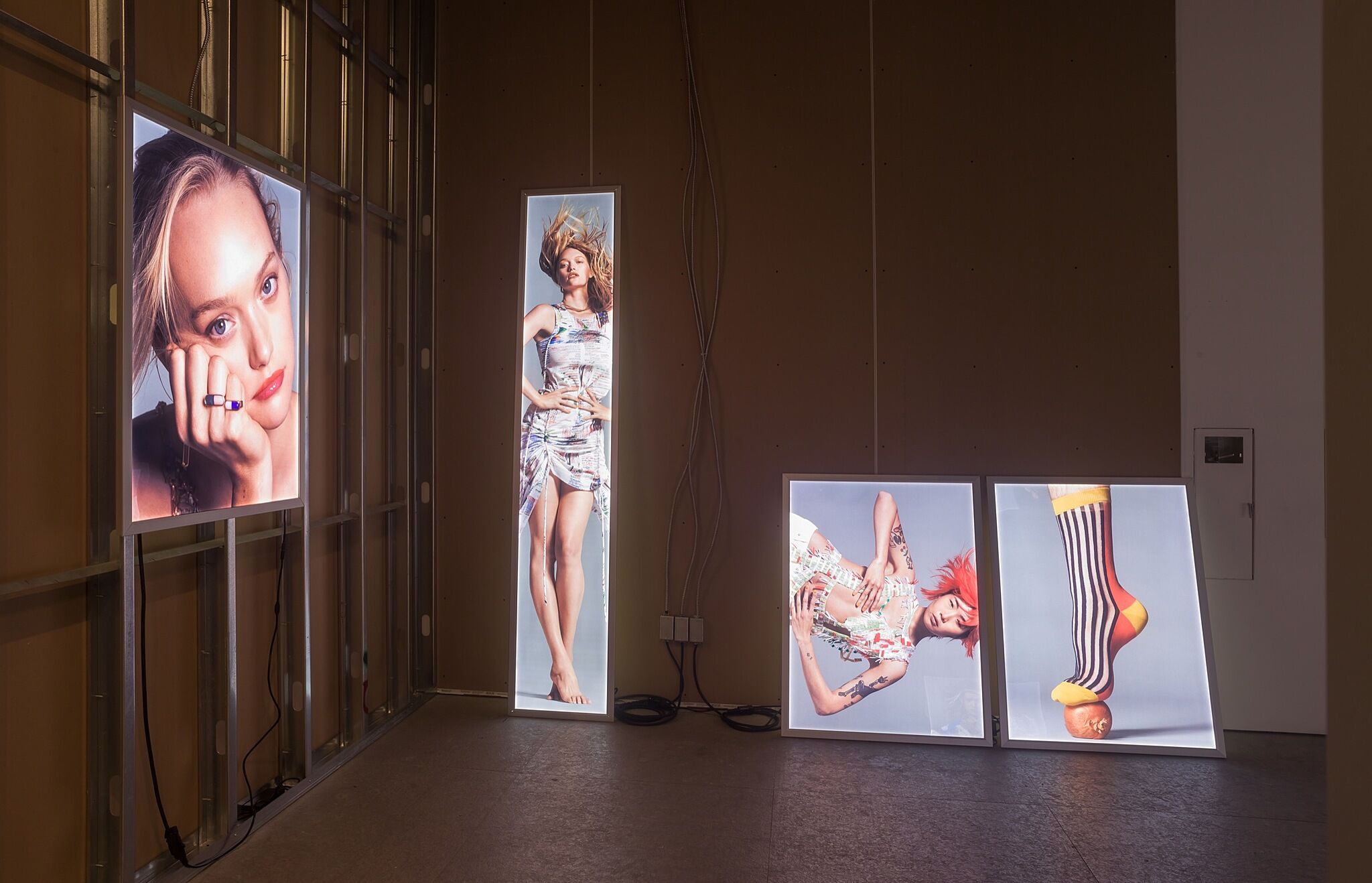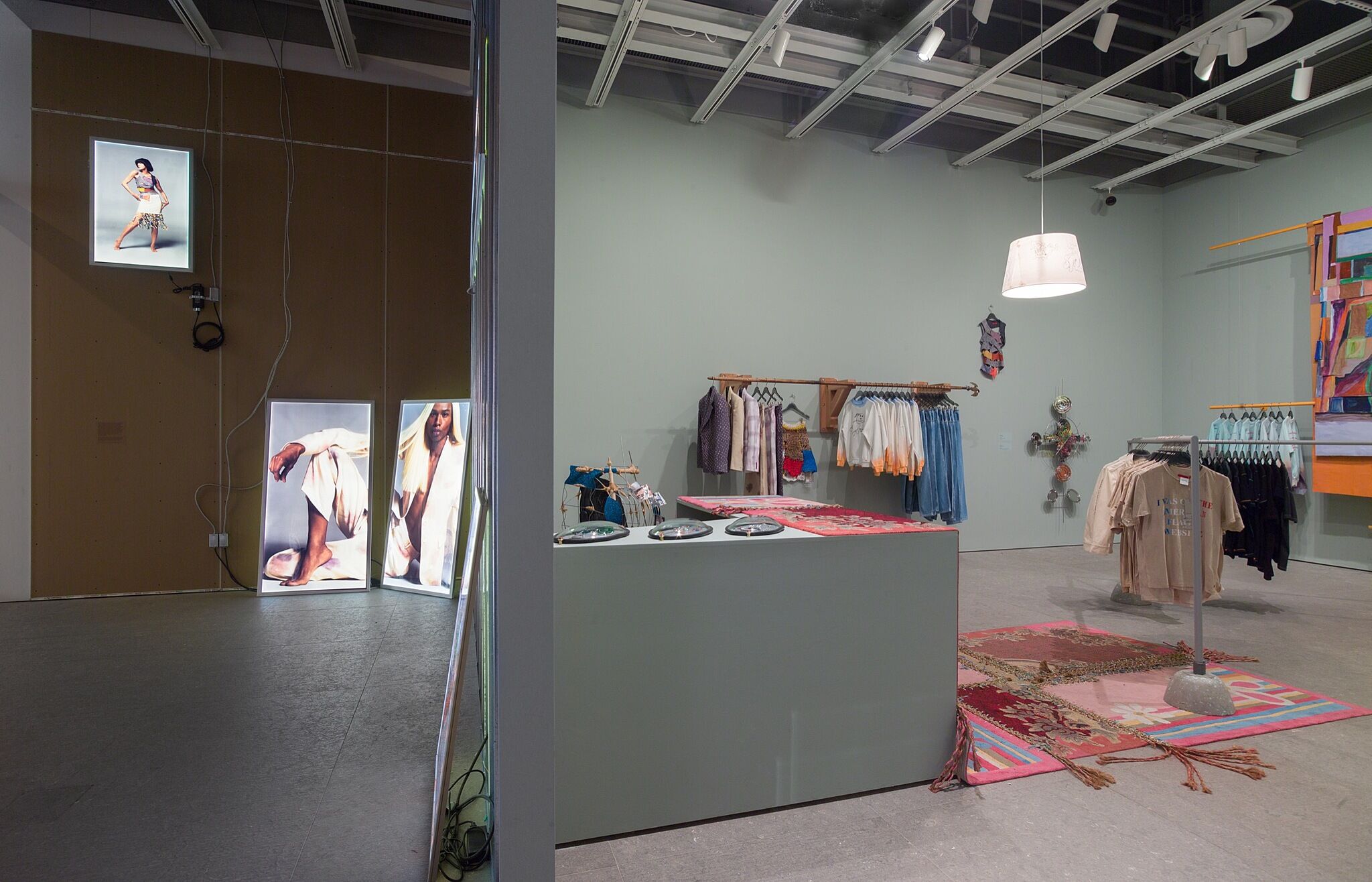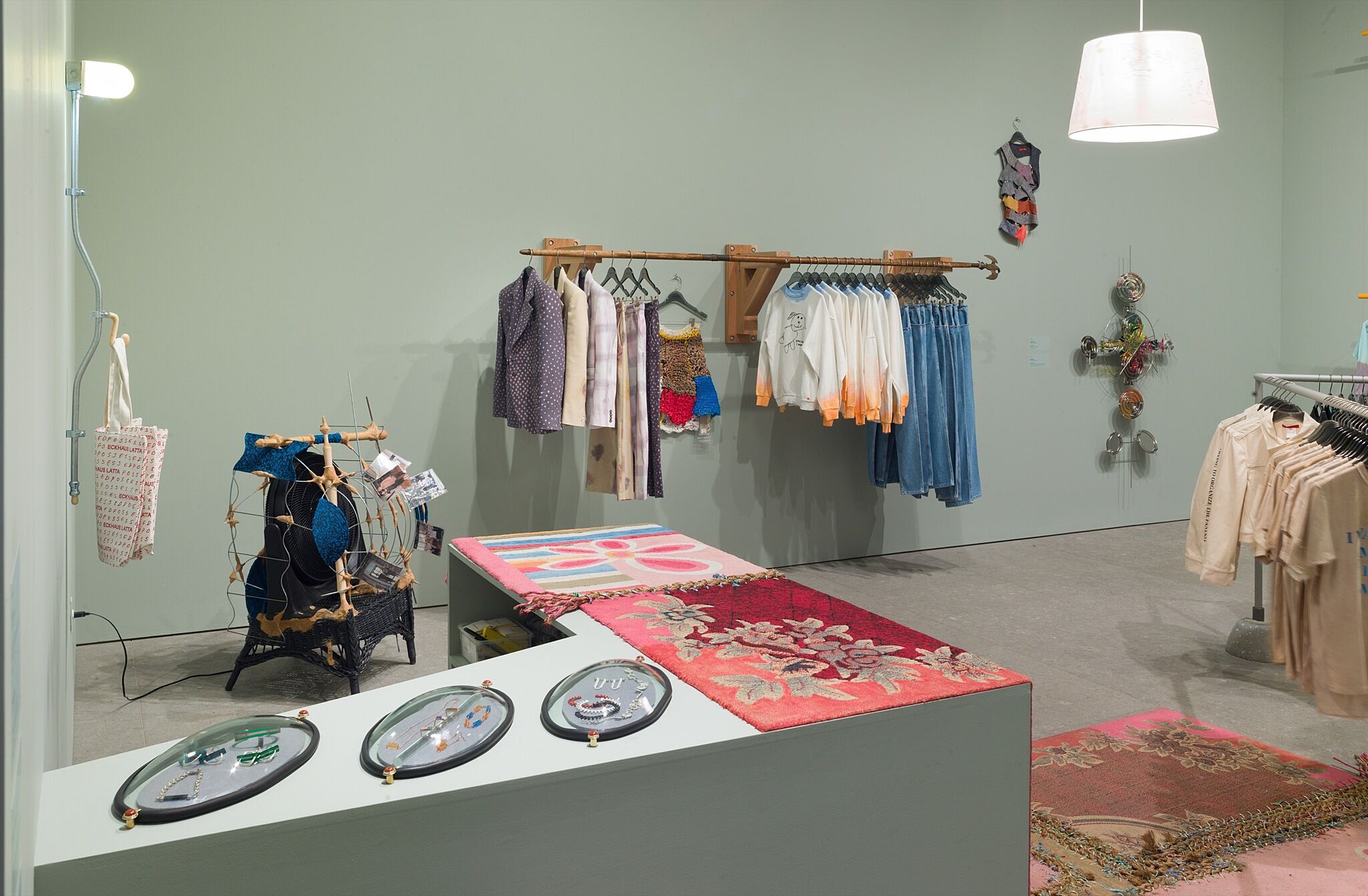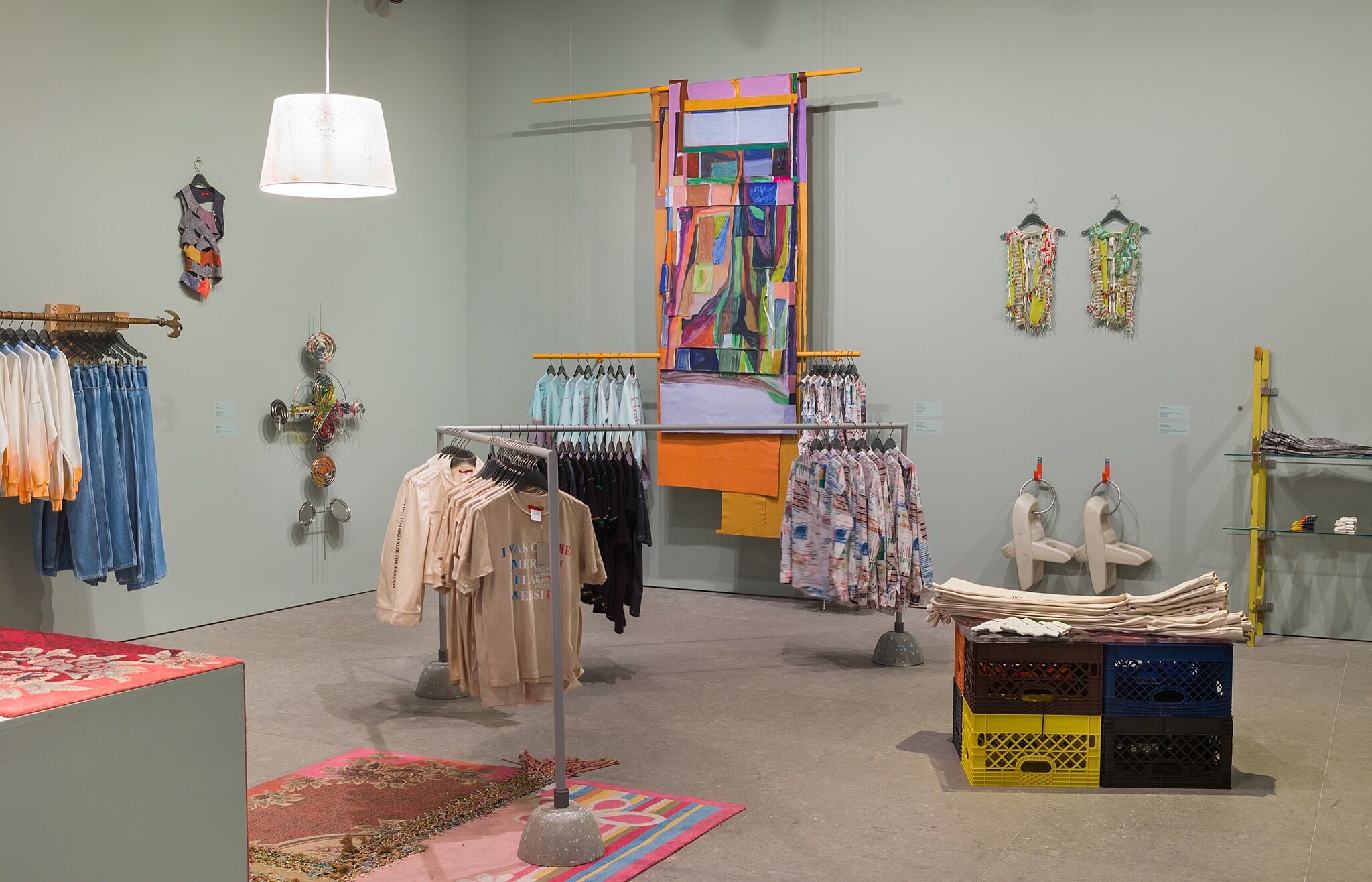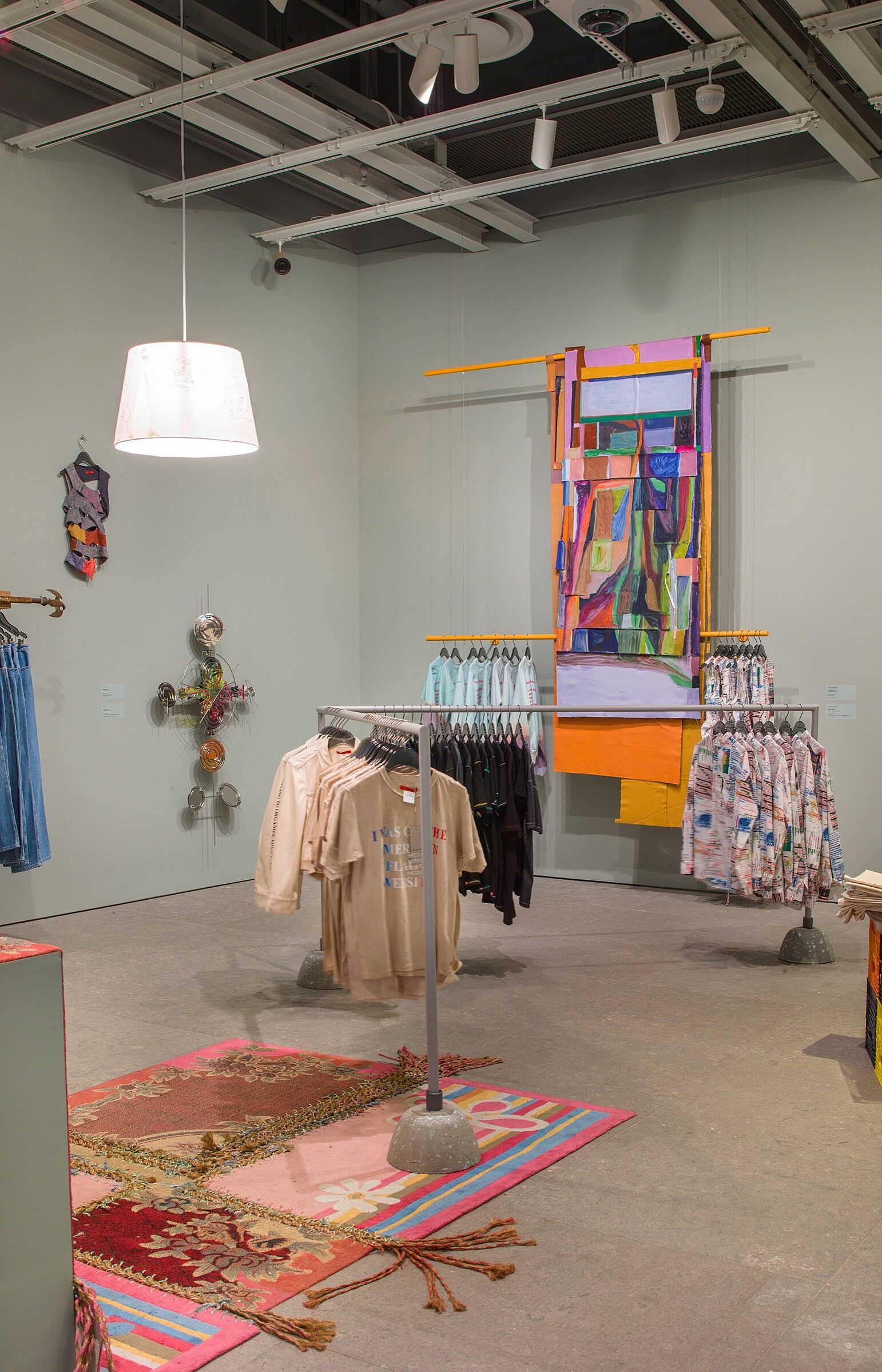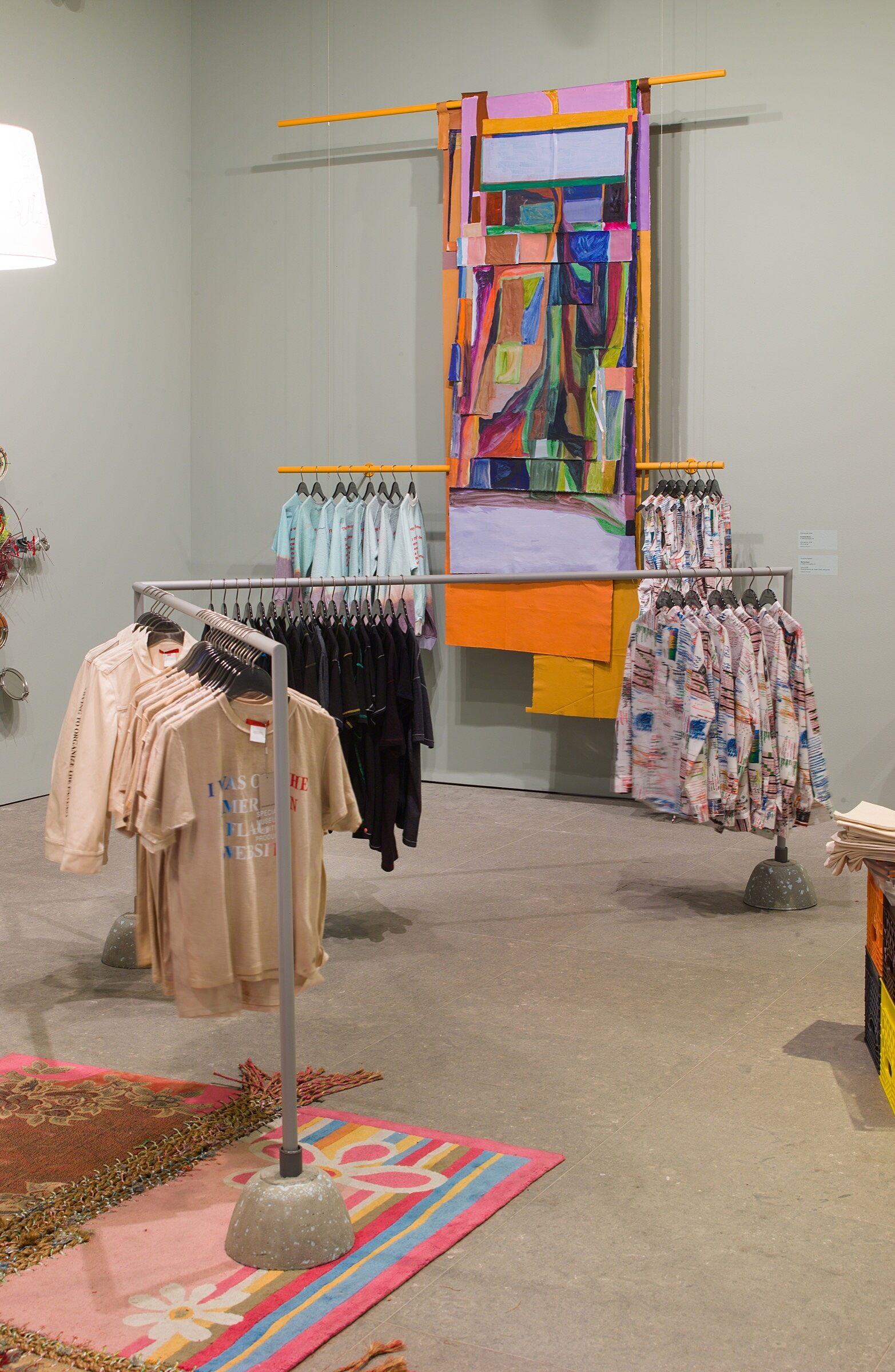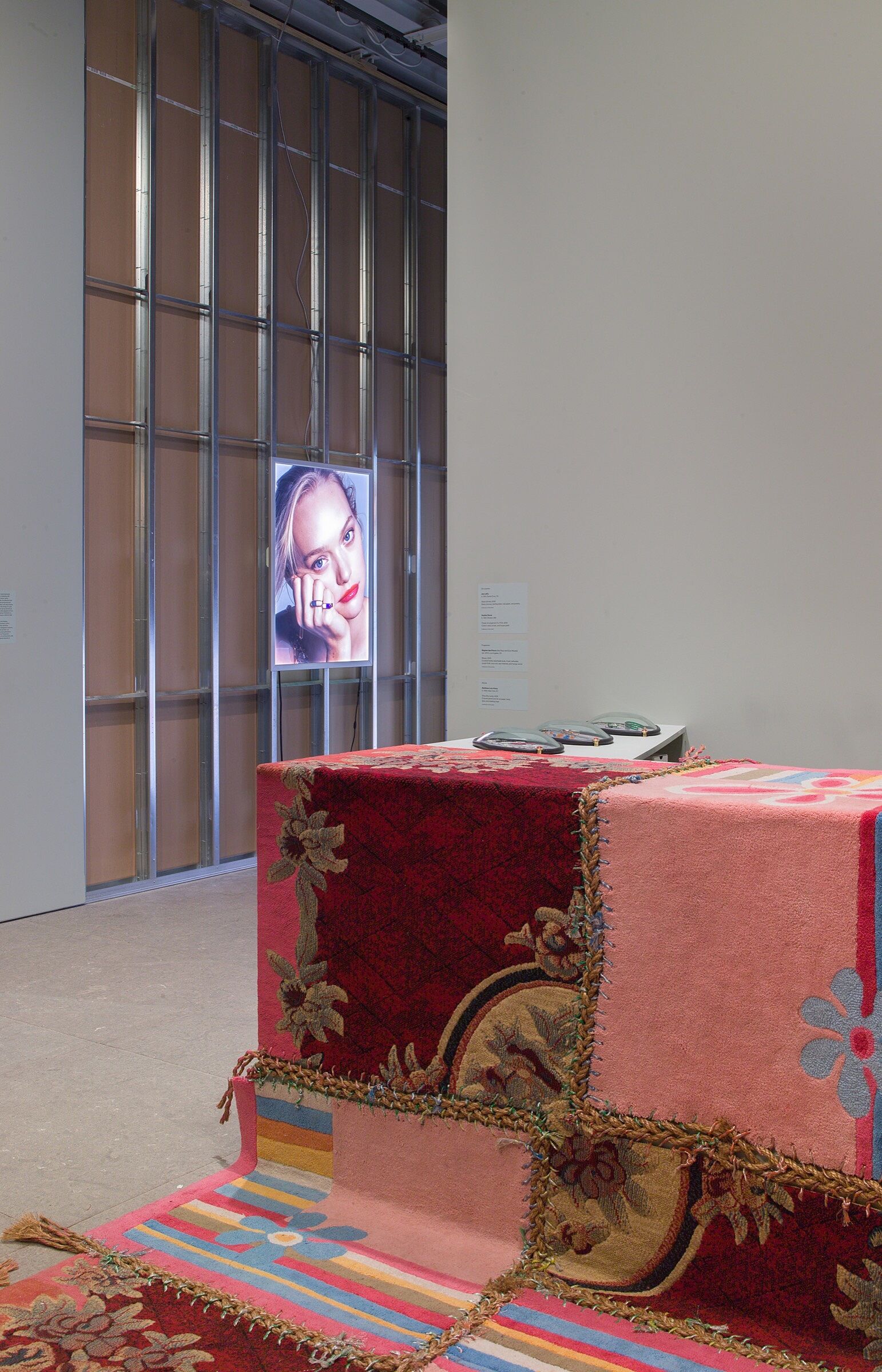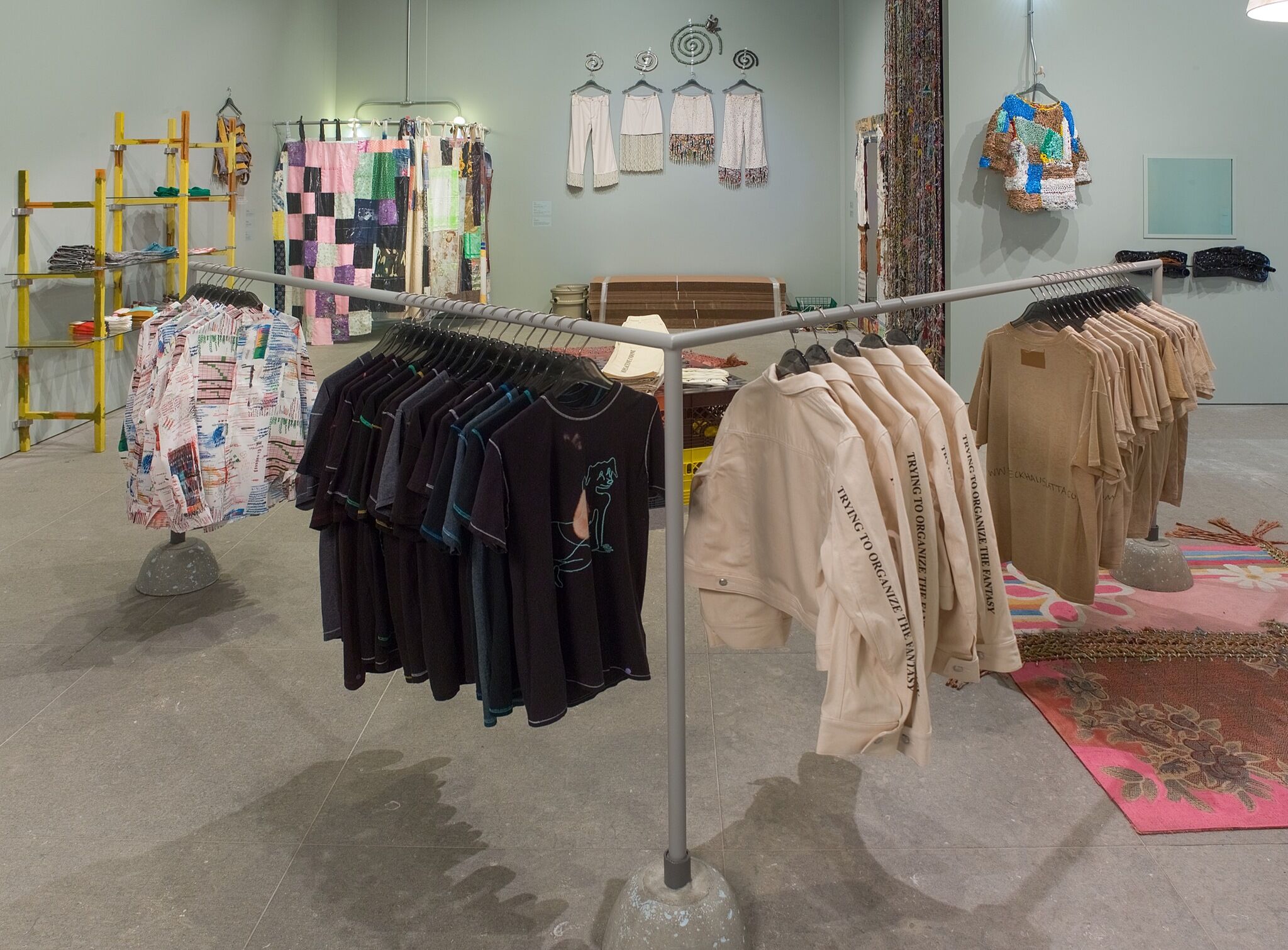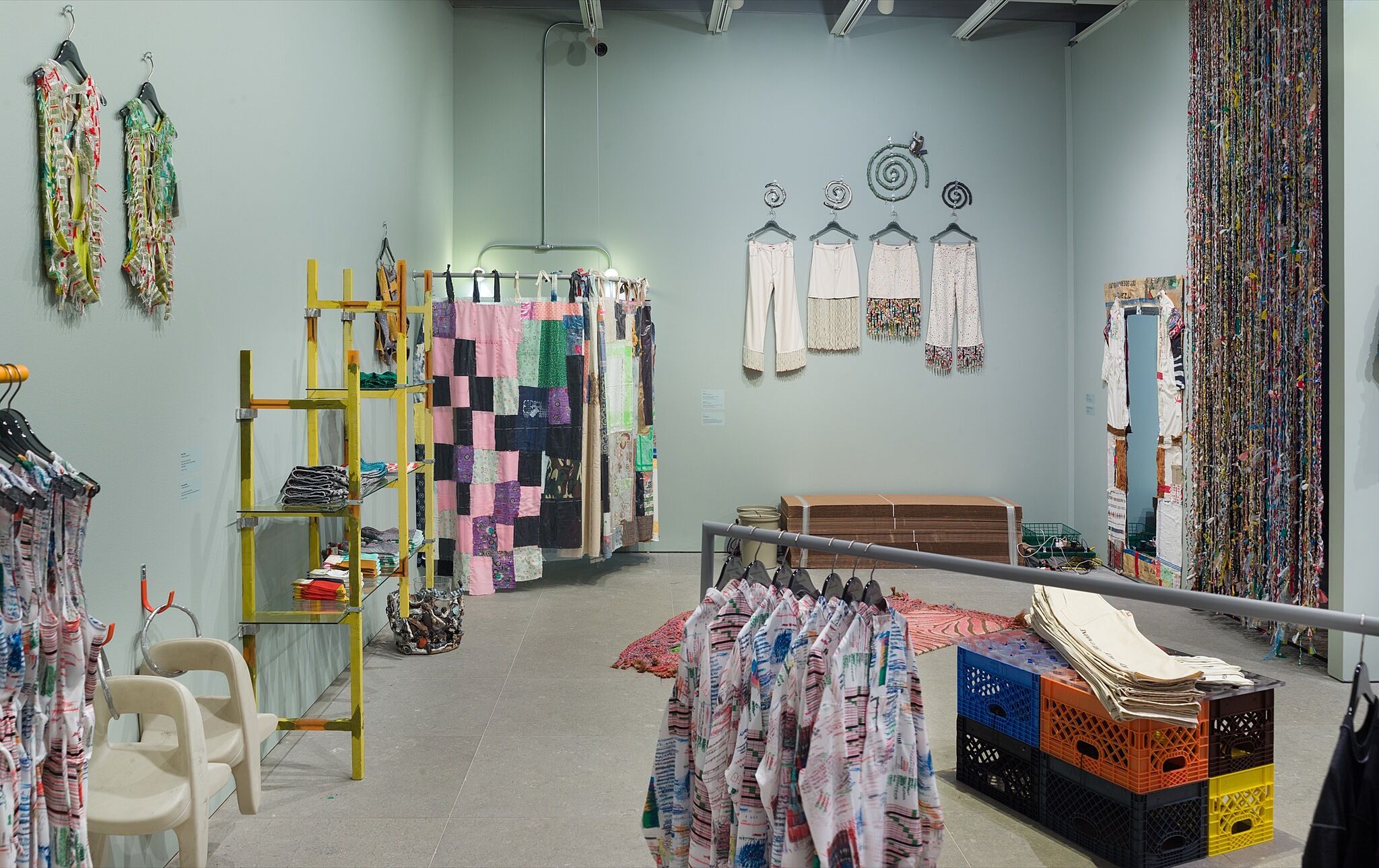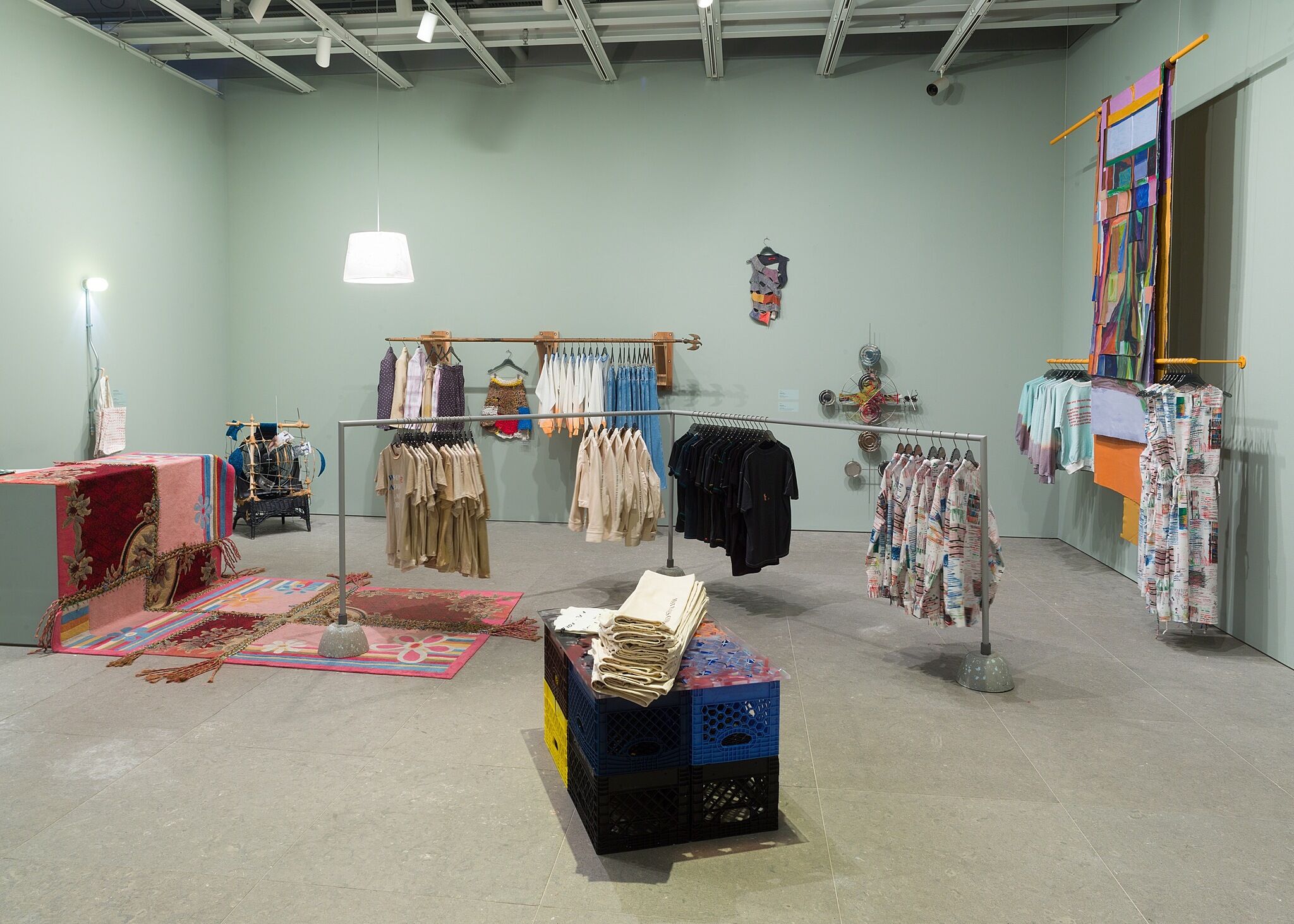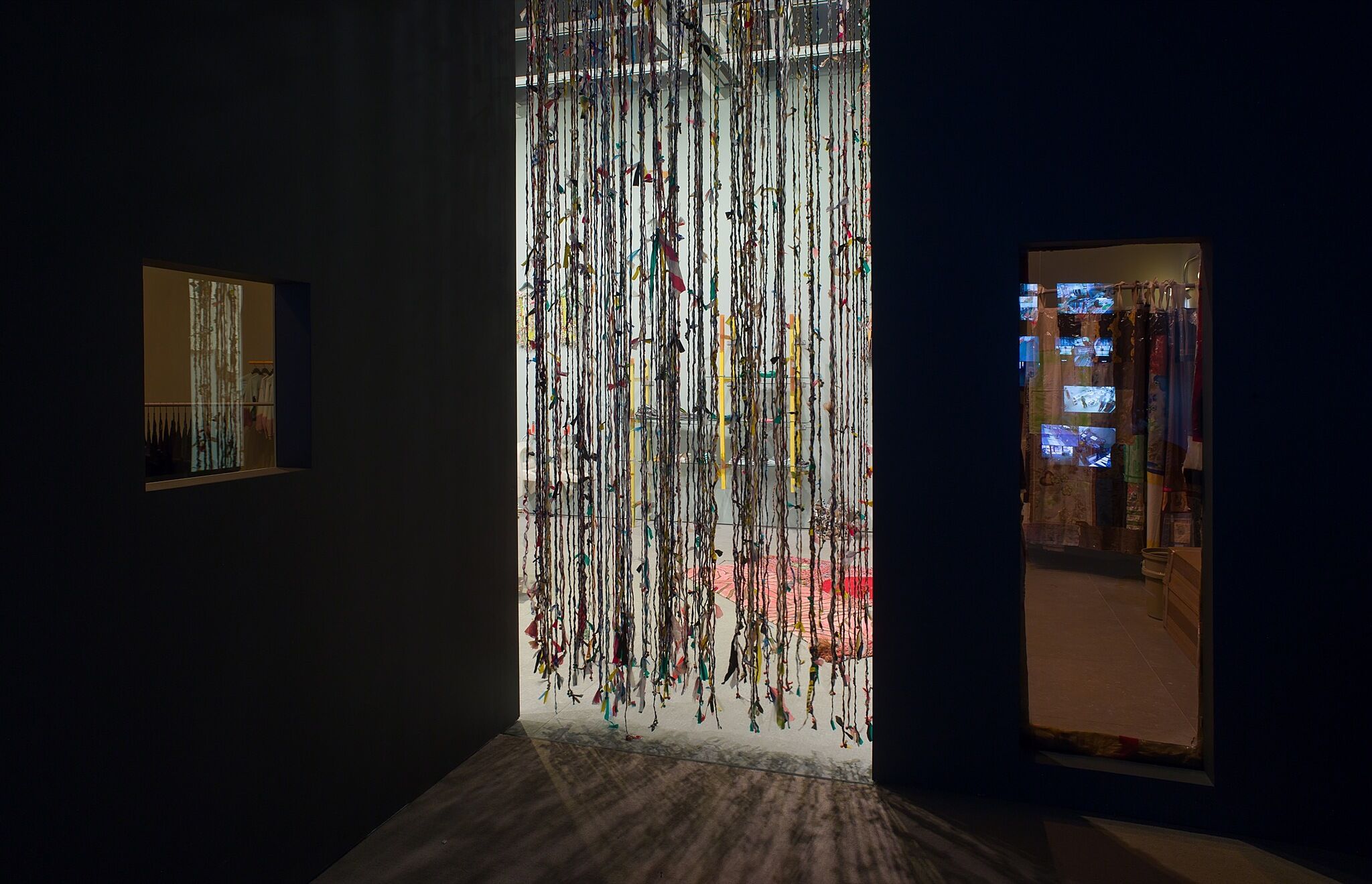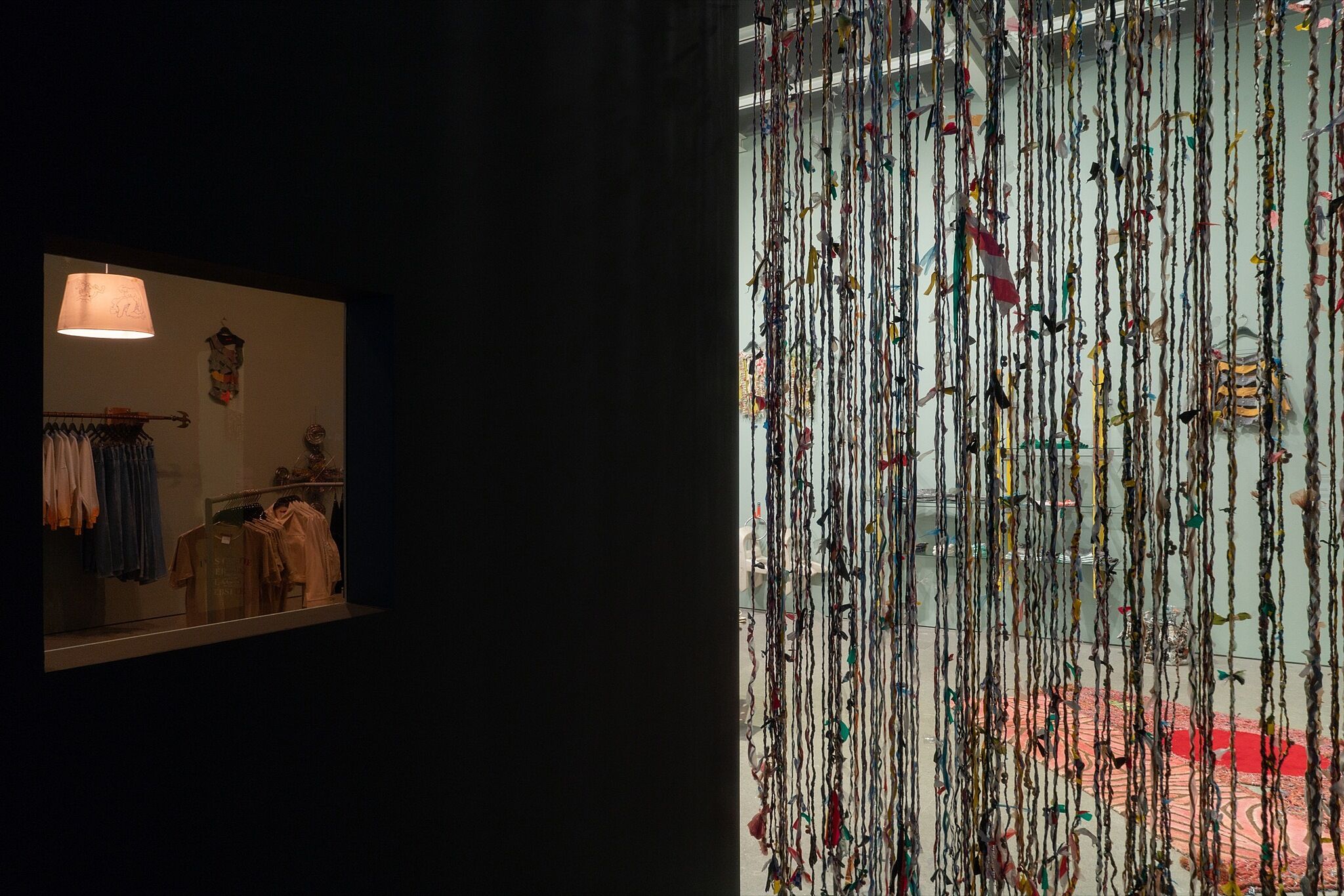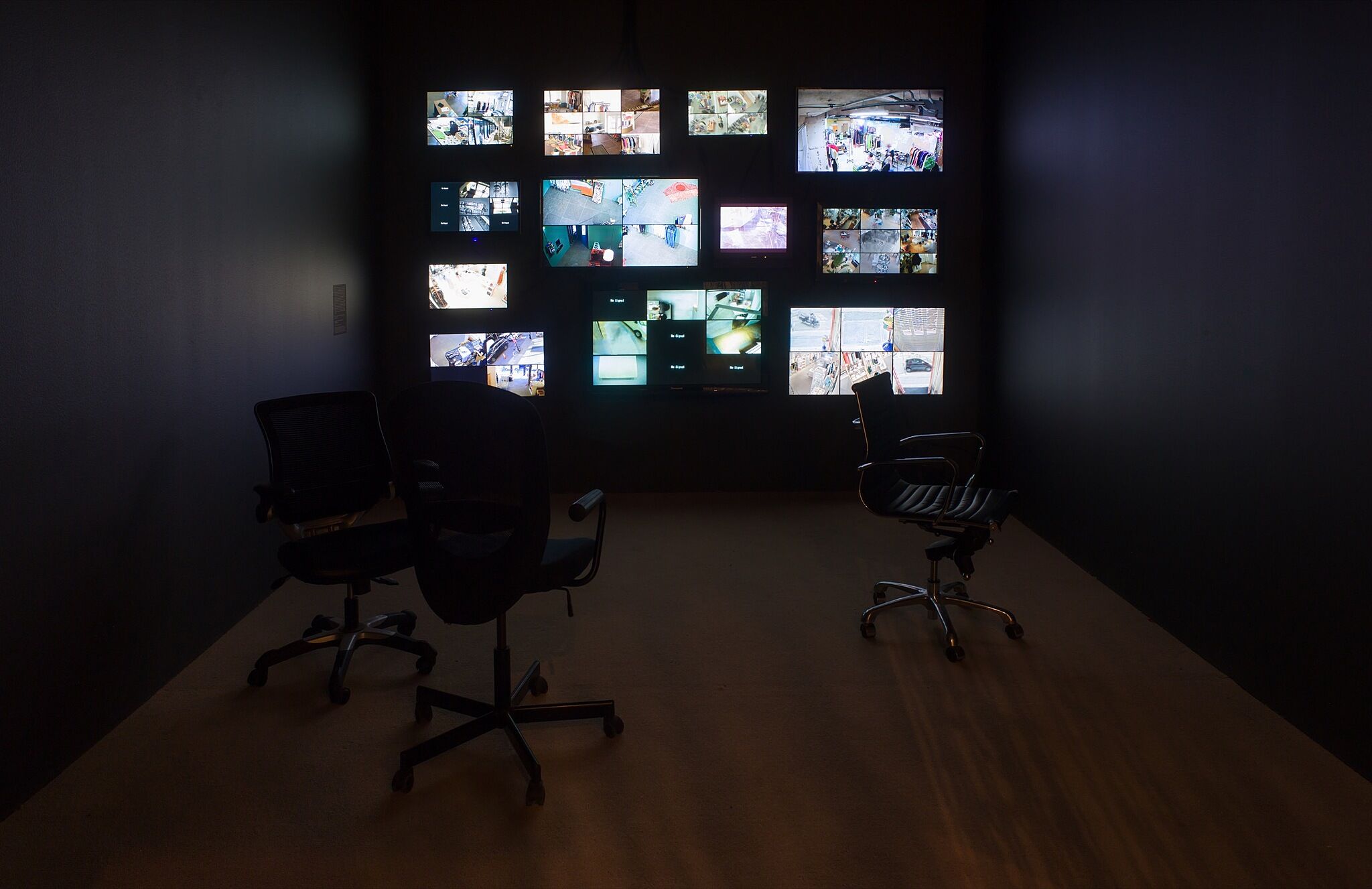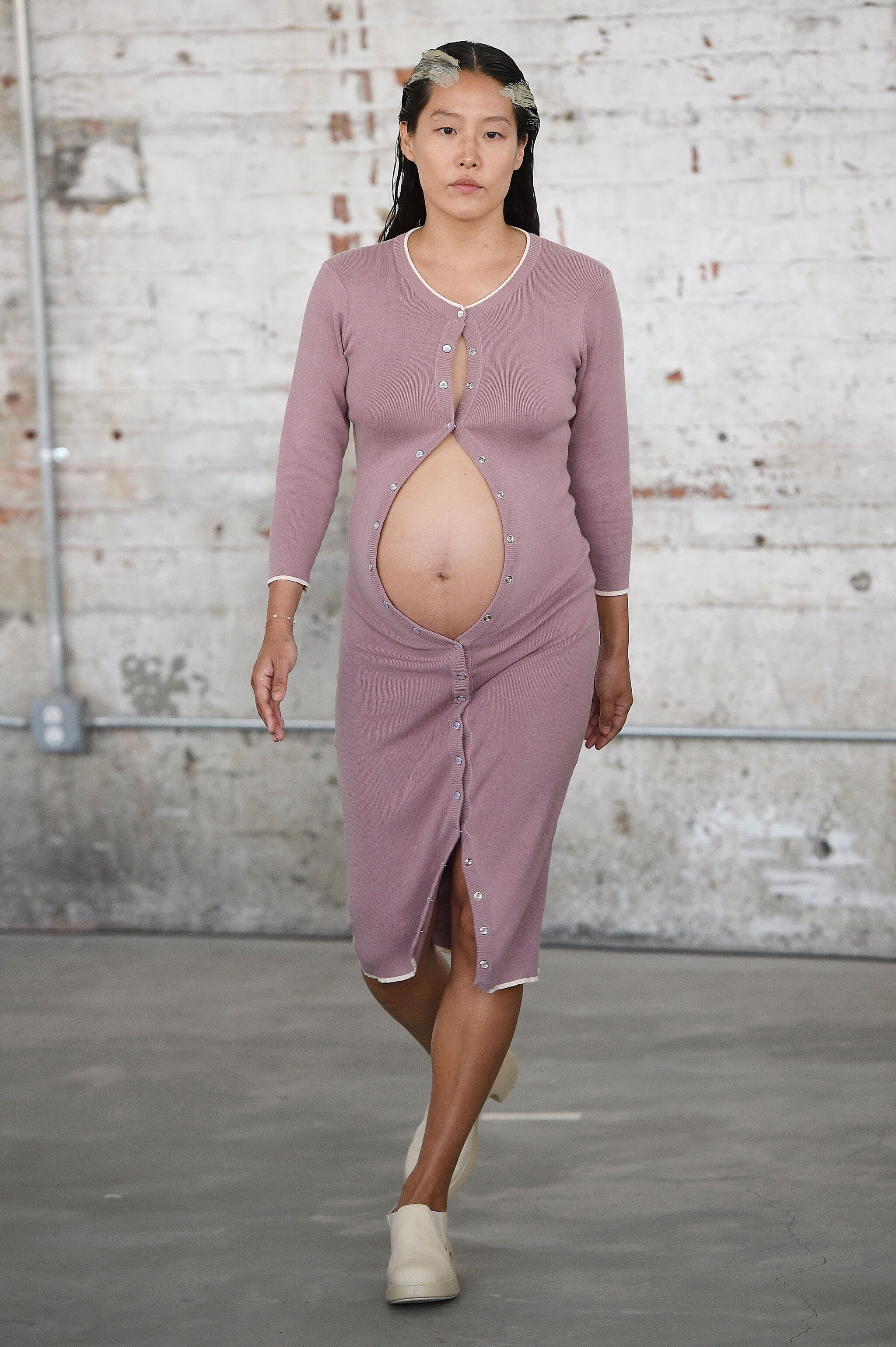Eckhaus Latta: Possessed
Aug 3–Oct 8, 2018
Eckhaus Latta: Possessed
Eckhaus Latta: Possessed highlights the work of Eckhaus Latta, a compelling young design team who belongs to a new generation of designers operating at the intersection of fashion and contemporary art. The New York- and Los Angeles-based fashion label was founded in 2011 by Mike Eckhaus (b. 1987) and Zoe Latta (b. 1987), who met as students at the Rhode Island School of Design. They are known for using unexpected materials, emphasizing texture and tactility in their designs, and for incorporating writing, performance, and video into their practice. Through collaborations with artists, musicians, and others, and an approach that plays both with and against industry conventions, Eckhaus Latta addresses the crosscurrents of desire, social relations, and consumption.
For their first solo museum exhibition, Eckhaus Latta will present a new three-part installation that embraces and brings into conversation various aspects of the fashion industry, from advertising and the consumer experience to voyeurism. The installation begins with a sequence of photographs that play on the tropes of iconic fashion photospreads, exploring how Eckhaus Latta’s unique aesthetic functions in relation to the highly polished look of the industry’s media. The core of Possessed is an operational retail environment in which visitors may touch, try on, and purchase clothing and accessories designed specifically for the show. Elements of the space—such as clothing racks, display shelves, and a dressing room—were created by more than a dozen artists with whom Eckhaus Latta has been in dialogue. The exhibition concludes with a darkened room, evocative of a security office, which features a bank of screens depicting surveillance footage. Visitors will have a voyeuristic view of the rest of the installation, as well as a glimpse into the tracking and surveillance that often accompanies the experience of shopping.
Eckhaus Latta: Possessed is organized by Christopher Y. Lew, Nancy and Fred Poses Associate Curator, and Lauri London Freedman, head of product development.
Major support for Eckhaus Latta: Possessed is provided by the John R. Eckel, Jr. Foundation.
Additional support is provided by Thea Westreich Wagner and Ethan Wagner.
Collaborators
Susan Cianciolo (b. 1969, Providence, RI; lives and works in Brooklyn, NY)
Lauren Davis Fisher (b. 1984, Cambridge, MA; lives and works in Los Angeles, CA)
Avena Venus Gallagher (b. 1973, Seattle, WA; lives and works in New York, NY)
Jeffrey Joyal (b. 1988, Boston, MA; lives and works in New York, NY)
Alexa Karolinski (b. 1984, Berlin, Germany; lives and works in Los Angeles)
Valerie Keane (b. 1989, Passaic, NJ; lives and works in New York, NY)
Jay Latta (b. 1951, Santa Cruz, CA; lives in works in Santa Cruz, CA)
Matthew Lutz-Kinoy (b. 1984, New York, NY; lives and works between Los Angeles, CA and Paris, France)
Annabeth Marks (b. 1986, Rochester, NY; lives and works in New York, NY)
Riley O’Neill (b. 1992, Los Angeles, CA; lives and works in Los Angeles, CA)
Emma T. Price (b. 1987, Santa Cruz, CA; lives and works in Los Angeles, CA)
Jessi Reaves (b. 1986, Portland, OR; lives and works in New York, NY)
Régime des Fleurs (founded 2014; Los Angeles, CA)
Erica Sarlo (b. 1988, Briarcliff Manor, NY; lives and works in Brooklyn, NY )
Nora Jane Slade (b. 1986, Washington, D.C.; lives and works in Los Angeles, CA)
Sophie Stone (b. 1987, Boston, MA; lives and works in New York, NY)
Martine Syms (b. 1988, Los Angeles, CA; lives and works in Los Angeles, CA)
Torey Thornton (b. 1990, Macon, GA; lives and works in Brooklyn, NY)
Charlotte Wales (b. 1986, Farnborough, UK; lives and works in London, UK)
Eric Wrenn (b. 1985, Southfield, MI; lives and works in New York, NY)
Amy Yao (b. 1977, Los Angeles, CA; lives and works in Long Beach, CA and New York, NY)
In the News
“Possessed is not concerned with art’s boundaries and definitions, but with whether our ability to buy and sell a work is part of what we find attractive about it. It suggests that how we might own an object is, now, inherently part of how we value its aesthetics—even, or maybe especially, in a museum setting.”
—The Brooklyn Rail

